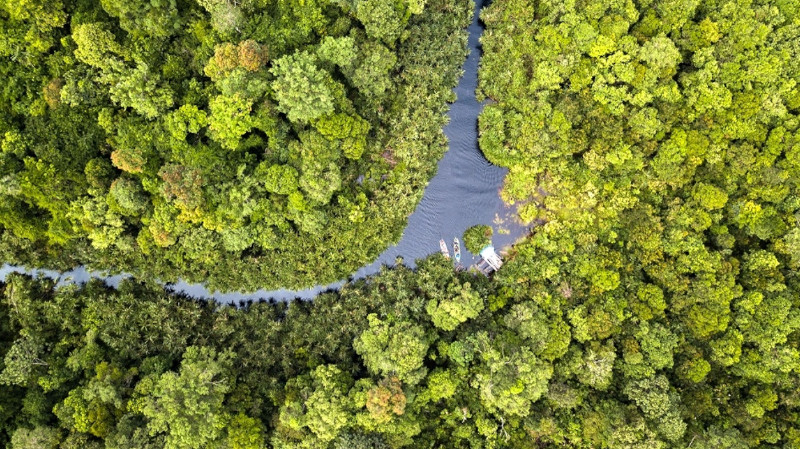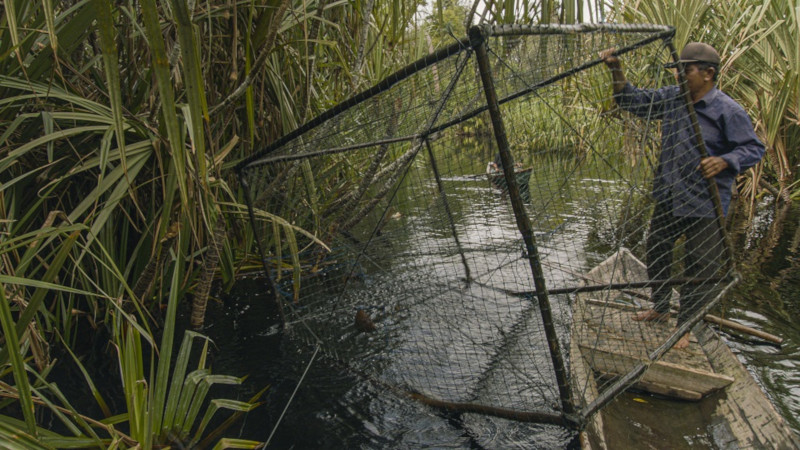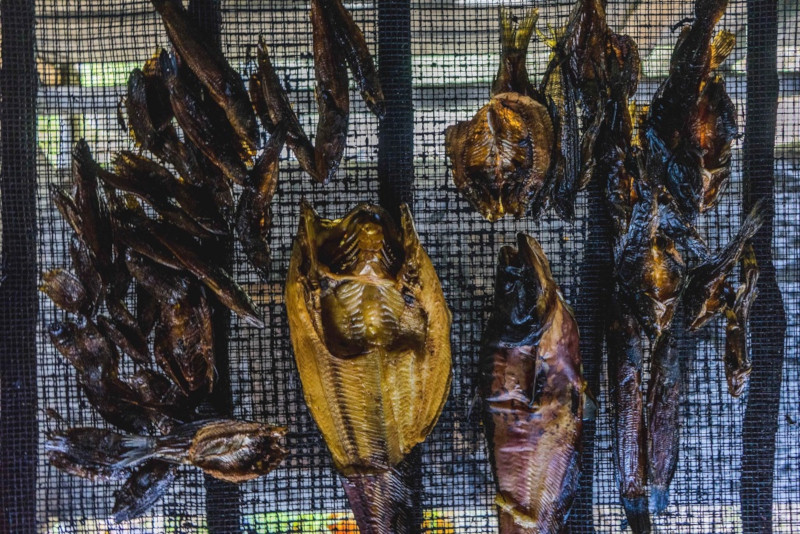November 30, 2021
Sustainable freshwater fisheries increase food security, human well-being, livelihoods, and poverty alleviation. But sustainable fishery requires a persistent fish population.
In Restorasi Ekosistem Riau (RER), community participation and sustainable economic activity are vital aspects of environmental and biodiversity protection, especially on the Kampar Peninsula. Sustainable fishing is one of the economic activities that we are promoting to communities living around our concession areas.

There are four main rivers on the Kampar Peninsula, the Serkap, Turip, Kutup, and Sangar Rivers. Prior to the establishment of RER, local fishermen had traditionally fished on the Serkap River, using unsustainable fishing practices that posed risks to the river’s aquatic life. They even sometimes burned the vegetation on the riverbanks to make access to the river easier, leading to forest degradation.
That’s why RER has been working very close with the local fishing community to ensure access to fisheries and promote sustainable fishing practices that will help improve the livelihood of the community members and the wellbeing of the forests.
Fishery training
On 9-10 October 2021, we conducted training at RER Eco-Camp for 29 participants from five villages surrounding RER areas, in cooperation with four facilitators from the University of Riau.
The training aimed to equip local fishermen with the skills they need to ensure sustainable fish population in the rivers.

The training also shared fish processing skills to improve fish product shelf-life, reduce fish loss during processing, and at the same time utilize by-products from fish processing to produce value-added products and convert what was once waste into economic and environmental gains.
On the first day, the training was led by Prof Dr Irwan Efendi M.Sc and Dr Saberina S.Pi MT.
Prof Efendi once served as the Head of Fishery Department at the Riau Provincial Government and had visited Serkap River in the RER area several times.
“Serkap River is blessed with a rich variety of fish. The result of my most recent observation shows that there are various type of local fish such as Linca, Tuakang, Gabus, Baung, Lais, Toman, Tapah Koro and Tapah of all sizes,” said Prof Effendi in his opening remarks.
He also mentioned some newly identified fishes, such as Red Fish, which has potential as a hobby fish, such as Koi, rather than consumable fish.
Effendi said that it is important for local fishermen to grow their business while maintaining sustainable practices.
“It is important to re-stock various types of local fish that are popular as public consumption, such as the Lais, Baung, Patin, and Tapah fish,” he continued.
He suggested the fishermen establish dedicated fish spawning locations along the Serkap River to avoid the fishes from depleting.
“The best way of doing it, is by making ponds in the water or on the ground, and brooders to keep the hatchlings safely until they can be brought back to the Serkap River,” Effendi explained.
Sustainable fishing and processing fishery products
Dr Saberina explained about how to make net cages in a traditional yet sustainable way. Fishermen around RER are familiar with cage system cultivation which uses floating cages that are lined by wood, bamboo, or nets.
The training continued with how to make better floating net cages, with focus in protecting the fish catch from crocodiles, lizards or beavers. While installing the cage, fishermen should also pay attention to its weigh to avoid it floating away.
Other training material was given on processing fish products to 20 female participants by two other facilitators, Dr Andarini Diharmi, S,Pi M.Si and Ulil Amri MC S.Pi M.Si.
Local communities living near the Serkap River only know how to process smoked fish. That was why the training provided by Dr Diharmi focused on other type of fish processing such as fishballs, fish nuggets and various kinds of fishcakes.

For RER, community involvement in the protection, planning, and management of the restoration area is essential. Thus, RER wants to ensure that every traditional activity such as fishing or forest honey gathering are preserved in a more sustainable and profitable way.
Training and workshops such as this are some of the strategies to involve the communities on RER ecosystem restoration efforts.